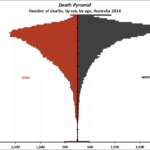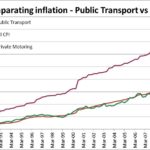For whom the slots toll

Australians love to poke a pokie. Or so it seems judging by the $12 billion spent every year down the slots. This figure (which accounts for just over 50% of all gambling losses in Australia) is also a significant proportion of Australians’ entertainment budget, almost equalling the $14 billion spent every year on domestic holidays.
But who is dropping all the coins in the slots?
Gambling statistics are notoriously under-reported in surveys, presumably because of our socially undesirability bias (i.e.: we under report things which we think make us look bad, and over-estimate things which make us look good!). This makes demographic data about the people involved particularly hard to find.
(Side note: This bias is so strong that ABS ‘s Household expenditure statistics under-report gambling by a factor of 11; the HILDA (Household, Income and Labour Dynamics in Australia Survey) does better but still under-reports gambling by almost 300%, and pokies by a factor of almost 7.)
We do however, have information about where the money is spent. Assuming most pundits at the local pokies pub are locals, we can say that pokies are the game of choice (or addiction) of the poor and disadvantaged. Pokies expenditure per capita was 6 times higher in Melbourne’s poorest Local Government Areas than in the wealthiest ones. Income, Disadvantage indexes and Newstart payments (unemployment benefits) all correlate strongly with pokies losses.
It’s unclear how accurate these estimates, however, I reckon they’re probably underestimates of how well correlated these characteristics are. I assume poor folk play the pokies in their local pubs, as well as sometimes at pubs in town, or in “destination” areas. I doubt this is the case with folk from richer areas travelling to poorer, less hip areas to play the pokies. Also, I think the expenditure in the CBD and inner suburbs (the wealthy ones) is over represented in tourist expenditure. Therefore, I think the “per capita” for rich locals is actually less than the figures calculated above, and the poor folks’ is underestimated. This suggests to me that the correlation is stronger than the figures show.
Surprisingly, at least for me, pensioners and the aged do not correlate highly with pokies.
I’m not generally a fan of paternalistic rules. And I dare say most people play the pokies as a form of entertainment. But I’m willing to consider them when they target addictions, especially those affecting the more vulnerable among us.
Perhaps it’s time to heed Tim’s message and blow up the pokies… or at least consider the PC’s recommendations and introduce some limitations.




















This is nice – I love the interactive graphs!
Thanks Erica.
There’s also a random jackpot! Every now and then the graph interactor wins… just keep pressing the buttons!